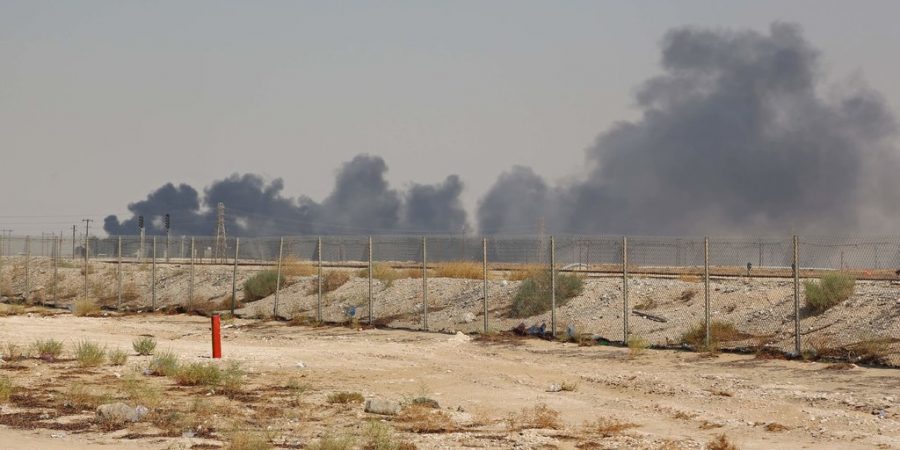Hard-Liners in Iran See No Drawback to Bellicose Strategy

President Trump appeared to be softening toward Iran. He had broken with his administration’s leading advocate of confrontation, signaled a willingness to meet personally with his Iranian counterpart, and reportedly considered relaxing some sanctions.
But Iran, American officials say, responded with violence. The officials have accused Iran of orchestrating or even starting a major attack on Saturday against critical Saudi Arabian oil installations, jolting international energy markets and humiliating a key American ally.
The slap-the-other-cheek tactic is hardly surprising, Iranian scholars say. Tehran, they said, has concluded that its recent aggressions have effectively strengthened its leverage with the West and in the region. And despite his occasional outburst of threats, Mr. Trump is deeply reluctant to risk an open-ended military confrontation in the Middle East that would endanger world oil supplies in the middle of a re-election campaign.
“Iranian hard-liners consider Trump’s inconsistency to be weakness,” said Ali Ansari, a professor of Iranian history at the University of St. Andrews in Scotland. For Iranian hard-liners, he said, “their policy of ‘maximum resistance’ is working.”Mr. Trump has imposed punishing sanctions on Iranian oil exports, and analysts argue that desperation has convinced Iranian leaders, who call the sanctions “economic warfare,” that striking back is their only choice. But Iranians say Mr. Trump has already demonstrated his aversion to using military force to follow through on his threats.
American officials concluded that Iranian forces sabotaged a handful of oil tankers near the Strait of Hormuz in May and June, and shot down an American surveillance drone in June. Mr. Trump initially ordered a wave of American airstrikes in retaliation for the downing of the drone, but he called it off at the last moment.
Then the administration’s leading Iran hawk, John R. Bolton, was forced out as national security adviser, reportedly over a disagreement with the president over talks with Tehran.
Iran, demanding relief from sanctions, appears to be lashing out, whether directly or through allies. The muted reactions from Washington — including the initial response to Saturday’s attack — appear to have validated that strategy, several analysts said.
Even as Mr. Trump added his voice to the chorus of officials pointing to Iranian responsibility for the attack, he repeated his aversion to armed conflict and hopes for negotiations, saying, “I know they want to make a deal.” He had already said any retaliation over the attack would depend on input from Saudi Arabia, which put off the question by calling for a United Nations inquiry.
“He is a not a lion, he is a rabbit,” said Ali Bigdeli, a political analyst in Tehran, of Mr. Trump.
“This counts as a big boost for Iran,” he added. Whatever the degree of Iranian involvement, he said, the attack “is a showcase of Iran’s power and influence.”
Iran has denied responsibility for the attack, and an Iranian-backed faction in Yemen, the Houthis, has claimed it. But the strikes demonstrated more clearly than ever that Iranian forces or their regional surrogates can imperil American clients and global oil supplies, even while under punishing sanctions.
“The Saudi air defenses have been proved completely worthless,” said Michael Knights, a scholar at the Washington Institute for Near East Policy. “They are not going to be ready for Round 2.”
Some Iranian officials appeared to boast after the attack about the leverage they had gained. “Iran has not used all its winning cards yet in the oil war with the U.S. and Saudi Arabia,” Mohamad Imani, a military strategist for the Revolutionary Guards, wrote on his Telegram channel.
Nor does Iran appear to be paying any penalty in global diplomacy, said Ellie Geranmayeh, a scholar of Iran at the European Council on Foreign Relations.
The European powers, she said, blame Mr. Trump for starting the escalation that led to the attack by withdrawing the United States from the 2015 deal that world powers had signed with Iran to remove sanctions in exchange for limitations on the country’s nuclear program.
After abandoning the accord last year, the Trump administration imposed sanctions on Iranian oil sales in a bid to win a more restrictive nuclear pact. European powers, opposing the American sanctions and hoping to salvage the 2015 deal, have sought to offer relief.

Related News

US pauses green card lottery program
News Desk WASHINGTON: US Homeland Security chief Kristi Noem ordered the suspension of the diversityRead More

Pakistan Libya Defence Cooperation Strengthened During Official Visit
RAWALPINDI, DEC 18 /DNA/: Field Marshal Syed Asim Munir, NI (M), HJ, COAS & CDF,Read More


Comments are Closed